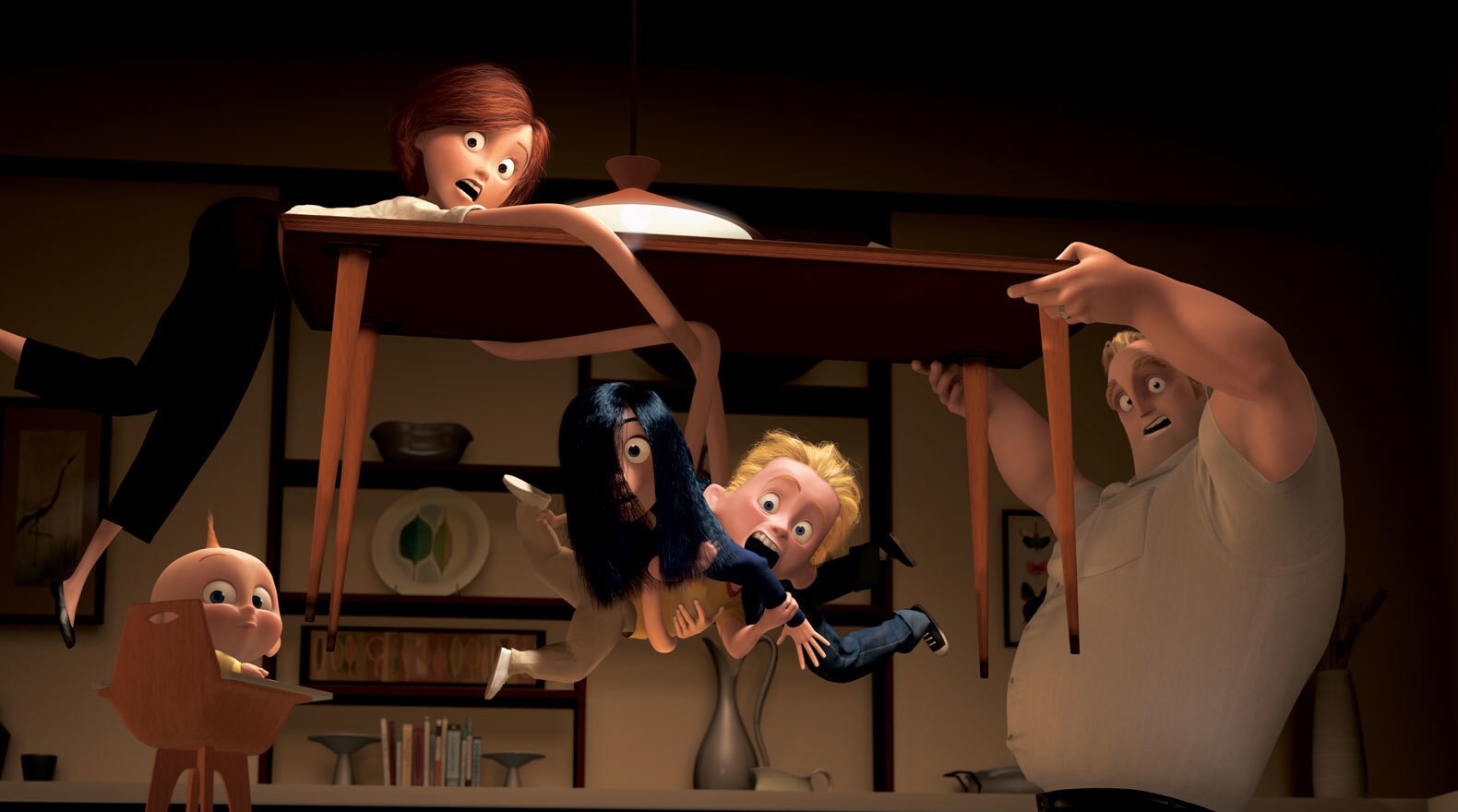The Role of a Father in Homemaking
Many Men Struggle to Engage With Home Life. Why? What Can You Do?The Role of a Father in Homemaking
Homo sapiens is a species designed to live in a zoo very different from the one in which it is currently the leaseholder. 1Lionel Tiger, The Decline of Males: The First Look at the Unexpected New World for Men and Women (New York:
Saint Martin’s Press, 1999), 15.
Do you find it difficult to connect with domestic life? If so, you’re not alone. Many men find the workplace a more natural habitat than the home. This article considers how men can engage with life at home. After an illustration of how fathers can fail at home by keeping emotional distance from family dynamics, this article highlights the critical role of a father in “homemaking.” Can masculinity mix with domesticity? Yes, and this article explains how.
Engage!
Life at home is not easy: work becomes the place where the father’s battery is used, and home is where it is recharged. A Disney Pixar film that captures this phenomenon is The Incredibles. Early in the film, during family dinner, the mother (Helen Parr) is breaking up a nasty sibling fight that has suddenly erupted (growing up with many siblings confirms that this is more than common). The father (Bob Parr) is reading the newspaper about a recent crime. He is thinking about his role as Mr. Incredible, the man who saves people “for a living” (so to speak) identifying with his professional role as a superhero. While holding her children from tearing each other’s throats, Helen yells frantically, “Bob, it’s time to engage! Do something!”
If men understood the depth of that mother’s cry “Engage,” many marriage communication difficulties would improve overnight. Helen Parr probably represents more than one homemaker who cries from the depth of her being out to her homemaking partner: “Time to engage!”
Why is it Easy to Disengage?
No one wants to be a disengaged dad. Nevertheless, many men feel alien to the domestic environments of their family life. Why? Well, one way to characterize the differences between men and women is their relative ease in the “personal” and “external” domains of life. From a young age, it seems as though your average human female is more naturally focused on what you might call the “personal” aspects of life (e.g., faces, emotions, interpersonal relationships, etc.), and your average male is more focused on external aspects of life (e.g., achievement, spatiotemporal realities, etc.). 2 Cf. Louann Brizendine, The Male Brain 1st ed. (New York: Broadway Books, 2010) 143-146. See also Helen Fisher. The First Sex: The Natural Talents of Women and How They Are Changing the World. 1st ed. (New York: Random House, 1999), Introduction – xviii. Further, Deborah Savage’s treatment of the “Masculine Genius” may be of interest here: https://faithandreason.com/6342/ The male penchant for things “external” seems to come into conflict with the domestic environment which is deeply “personal.”
You might think of the stereotypical man out to solve problems, eliminate dangers, or forge ahead toward a goal (without much concern for how someone might feel in the process). Men tend to be more concerned with “getting stuff done.” For this reason, men are more inclined to step outside the safety of the home to provide what is needed to keep the home sustained. This “stepping outside” involves a healthy embrace of risk (and readiness for competition) if necessary.
Whether a man steps out of the familial warmth into the unforgiving wilderness to hunt for food or onto the merciless traffic of Madison Avenue, this realm of external dangers, competition, risks, and adventures is where meaning is more easily found. It is not uncommon to see men animated with their friends about business possibilities.
Masculinity and the Home
Male externality is not a bad thing, but it can be difficult to blend with home life. For one, life at home is not a project to be completed or a problem to be fixed. At home, every child deserves to be seen and loved for who they are, with their personalities – despite and alongside – their weaknesses. After all, your son/daughter is not a project but a person.
Fathers, whose natural impulse might be to fix those weaknesses, can have difficulties with the virtue of patience for instance. Being engaged at home requires a great deal of patience because children are not born saints. Certainly, fathers need to challenge everyone at home to grow in responsibility and ownership, but not without ignoring their children’s freedom (where patience is thus necessary). On the other hand, the “personal” dimension of concern makes the virtue of patience easier.
Consider the typical question, “How was school?”
A mother’s compassion makes this question and the ensuing dialogue interesting. A mother will “feel” the answer that her son/daughter gives. Women tend to listen to understand; men tend to listen to fix. Children know that their mothers care about what happens at school. But does Dad? Or does dad just care about external performance? Thus, “How was school?” can easily be reduced to “How are your grades?”
After all, men are not usually experts in creating interpersonal bonds. Nevertheless, expert fathers seem to actively work on connecting with their children’s emotional lives. So if Dad shows that he cares about something, it means that’s something important for everyone at home.
Thus, if a father wants to be engaged at home, giving his home the masculine influence that is necessary, what does he practically do? We can think about solutions in two camps. Every great father cares about (1) capitalizing on his strengths while also (2) improving his weaknesses.
Capitalizing on Masculine Strengths
The male disposition toward externality can be put to use in the family, particularly in building a family identity. In a sense, Mom builds the family by nurturing what is within, and Dad builds the family by delineating. Statements like, “This is who we are” and “This is who we are not” possess a certain weight when they come from a father. Dr. Meg Meeker talks at length about a father’s unique ability to form the identity of his children.
By cultivating a sense of one’s unique family identity, an identity that contrasts with that of other families, fathers can harness their masculinity in service to family culture. In a certain sense, a father has a kind of authority that no other person can rival, one which says, “This is who we are. We’re the Smith family. We’re kind, smart, and hardworking. We go to Church on Sunday, and we love music. These are the kinds of things that Smiths do (in boundaries), and there are other things that Smiths don’t do (out of boundaries).” As a father with a male disposition toward externality, you have a unique ability to establish the boundaries of your family’s identity. That’s a sacred responsibility.
Famed philosopher Alasdair MacIntyre has said, “We can only answer the question, ‘What am I to do?’ or ‘Who am I to be?’ if we can answer the previous questions of what story or stories do we find ourselves a part of.” 3Alasdair MacIntyre, After Virtue (Notre Dame, IN: University of Notre Dame Press, 2007), 216. Most people today have no sense of their family’s story. In a certain sense, a story is an “external” thing. A family’s story situates the family within a broader history, a history that is outside or “external” to the individual home, but which nevertheless informs family life. Children who understand their family story are stronger as a result.
They are stronger because they understand where they came from, the stories they are a part of, and thus who they are! Of course, children do not need to know the negative elements of their family story, but they should know the positive ones! As a father, you have a responsibility to tell that story, the story of your family.
But what does this look like? Consider the following practical ideas or something similar to them that are applicable in making your home.
1. Do Projects WITH Your Kids: There’s nothing complicated here. If, like many men, you enjoy outside activities, then simply do those activities with your kids. Yes, it takes longer to wash the car, shovel the driveway, and rake the leaves with your kids who may prove to be more of a hindrance than help. But they won’t forget the experience, and your presence is invaluable… Build a birdhouse, chicken coup, picnic table, or desk. Make your children a part of the process.
2. Talk About Your Work: Model for your family how to share what happens in the outside world. Demonstrate what it means to be an excellent worker. Make complicated things understandable. Open the dinner conversation with your “highlights” of the day, like the highlights from a primetime ballgame.
3. Tell Your Family Story: You can do this in a million different ways, and not all of them involve words. You might, for example, build your home in such a way that silently tells your children about their family story – hang up family portraits, design a family tree attractive for decoration (in your basement? a child’s bedroom?), display a family artifact, etc. Let them see you are proud of where you came from and where you are going. Tell them the best stories of your family – the great things Grandpa did, the way you proposed to your wife, or anything else that cultivates pride in the family story.
4. Lead Family Trips and Adventures: Make stories with your family by taking them into the outside world. Show your family you know how to take risks. Dad can be the agent and instigator of family fun and adventure. These trips can be as simple as a trip to the neighborhood park or as elaborate as an intercontinental vacation.
I will never forget watching my dad during our family trips to the beach. While I was terrified of the waves; he wasn’t. (When you are 6 years old, even small waves have a way of being “huge”). I have never gone to the beach since (even as an adult) without remembering the image of my father jumping headlong into the waves. My father brought his masculinity into the domain of his family life, and our whole family benefited as a result.
I suppose that’s the challenge for any man. Even though domestic environments may not feel masculine, fathers have a responsibility to bring wholesome masculinity into the home. Children benefit from seeing their father’s playful recklessness, tackling projects alongside him, and hearing his stories.
Mitigating Masculine Weaknesses
1. Show You Are Listening when your kids are talking, even if your gut instinct doesn’t find it interesting. Do you remember when you were a boy and wanted to share something? Remember that masculine attention has a high value, especially when Dad is home for fewer waking hours than mom is.
2. Ask Follow-up Questions: When a businessman wants to meet a client’s needs, he digs for what he cares about. Dig into your children’s concerns: Who are their friends? What subjects do they like and why? What are their strengths? Weaknesses? Fears?
3. “Waste time” with Your Kids and Wife: Men can easily fall into a utilitarian approach to using their time (e.g., What am I “getting” out of this?). Let your family see that their presence simply makes you happy. When a dad gets home from work (utterly exhausted sometimes) and shows his children that they make him happy, the rubber meets the road for heroic fatherhood.

Javi Mazariegos
Javi serves as the Manager of Operations at FORGE: he oversees the organization’s digital presence and coordinates content production. A philosopher at heart, he draws from his education in philosophy, theology, and literature at The Heights School and The Catholic University of America. He lives in Manhattan.
Share This
Sources
- 1Lionel Tiger, The Decline of Males: The First Look at the Unexpected New World for Men and Women (New York:
Saint Martin’s Press, 1999), 15. - 2Cf. Louann Brizendine, The Male Brain 1st ed. (New York: Broadway Books, 2010) 143-146. See also Helen Fisher. The First Sex: The Natural Talents of Women and How They Are Changing the World. 1st ed. (New York: Random House, 1999), Introduction – xviii. Further, Deborah Savage’s treatment of the “Masculine Genius” may be of interest here: https://faithandreason.com/6342/
- 3Alasdair MacIntyre, After Virtue (Notre Dame, IN: University of Notre Dame Press, 2007), 216.


